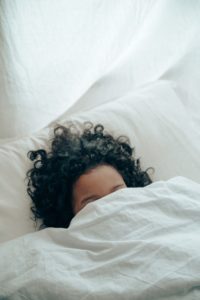 If your physician suspects you have sleep apnea, they will recommend diagnostic testing to confirm the breathing disorder. You’ll require a sleep test to monitor your vitals throughout the night. Whether visiting a testing facility or using an at-home solution, it’s normal to have a few questions about the road ahead. Don’t worry, here are 6 tips to prepare for sleep testing.
If your physician suspects you have sleep apnea, they will recommend diagnostic testing to confirm the breathing disorder. You’ll require a sleep test to monitor your vitals throughout the night. Whether visiting a testing facility or using an at-home solution, it’s normal to have a few questions about the road ahead. Don’t worry, here are 6 tips to prepare for sleep testing.
1. Discuss Your Medications
Certain medications can cause inaccurate results. It is important to discuss any medications you are taking with your physician beforehand, including those available OTC and supplements. Your physician may make temporary adjustments to ensure they don’t negatively affect the results of your sleep study.
2. Avoid Caffeine and Alcohol
Avoid caffeine and alcohol for at least 4 to 6 hours before your sleep test. Stimulants can make it difficult to fall asleep. If you spend the night tossing and turning, you may need to have the study repeated to get the information necessary for a diagnosis.
3. Pack an Overnight Bag
If you are scheduled to visit an overnight facility, you are going to need to prepare a travel bag. Besides packing comfortable clothing and any necessary toiletries, you can bring a book, relaxing music, or other amenities from home to keep you comfortable.
4. Don’t Nap During the Day
Untreated sleep apnea can leave you feeling exhausted during the day, but you are going to want to skip taking an afternoon nap. Resting your eyes for even a few minutes can make it more challenging to doze off at night.
5. Eat a Healthy Meal
Eat a healthy meal before you leave for your appointment. It is best to avoid any sugary foods or drinks. Instead, eat a filling meal to keep your hunger satisfied until you are ready to go home the next morning.
6. Don’t Use Hair Sprays, Gels, or Oils
Don’t apply any hair sprays, gels, or lotions after showering because they can interfere with the data gathered during your study. You will have electrodes and sensors placed on specific areas of your body to monitor your vitals and sleep cycle.
You can ensure nothing keeps you awake at night with a little preparation. Your sleep specialist will review any additional instructions and explain the entire process, so you know exactly what to expect. If you have any questions or concerns, don’t hesitate to ask for clarification. Once your sleep test is complete, the information will be analyzed, your physician will contact you with the results, and if any treatment is necessary. You will be one step closer to improving your sleep quality and overall wellness through a good night’s rest.
About Dr. Joe Bussell
Dr. Bussell has been practicing general dentistry since 1988 and has specialized in dental sleep medicine for over a decade. He has advanced training in oral appliances to treat sleep-related disorders. If you need treatment for sleep apnea, contact our office today to see if oral appliance therapy is right for you.
